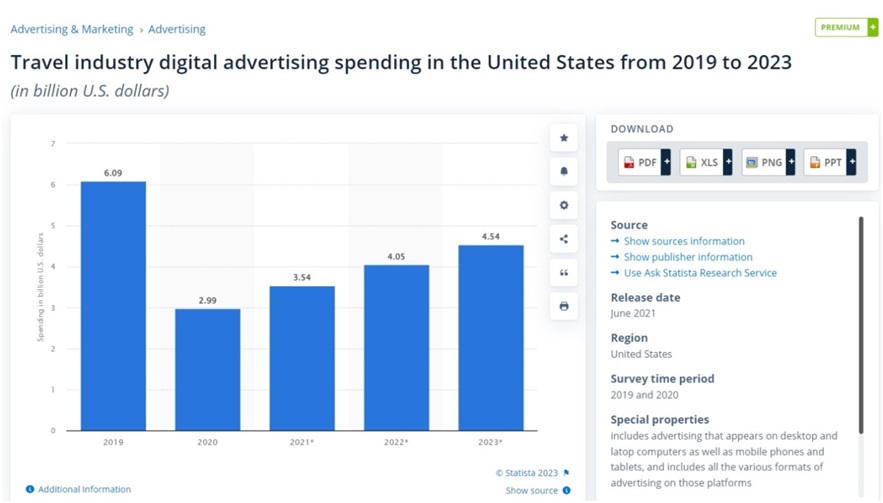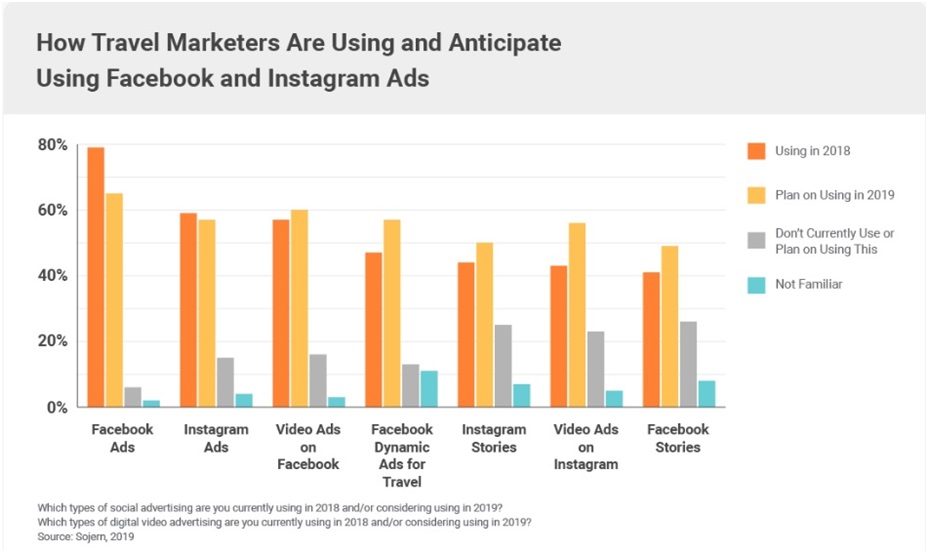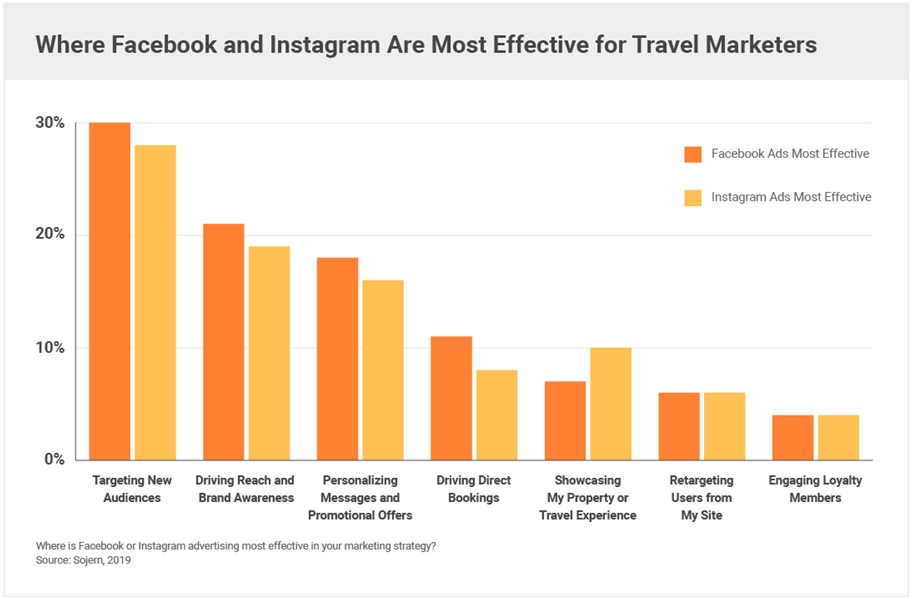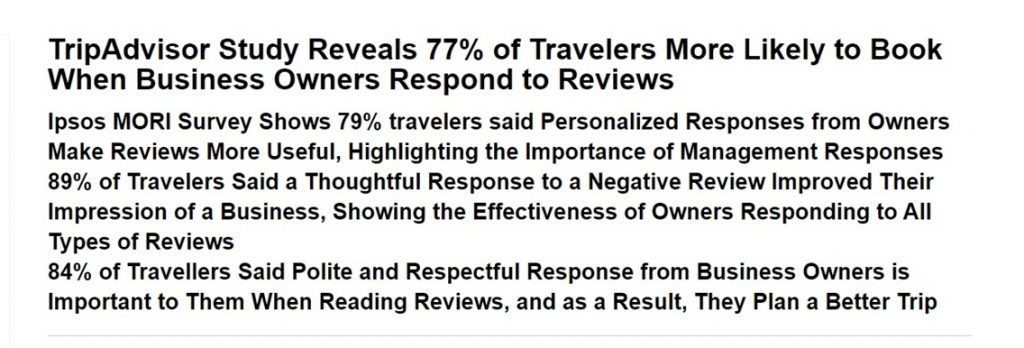HOME » FOR TOURISM ORGANISATIONS » Open Lessons on Smart Tourism » Facts and Statistics
Lesson 3
Facts and Statistics

Statistical data on the state of online tourism marketing in the world are provided from various open sources. They mainly refer to the period 2019-2023.
The global cost of online travel advertising is a gigantic sum – more than 12 billion dollars a year. For example, in 2019, US companies alone spent $6.09, and in 2023 it is expected to spend $4.5 billion. The impact of the pandemic is clearly visible here, but online advertising spending will only increase as tourism recovers.

Approximately 25% of Google searches are related to travel. The search ad market alone is valued at $5.84 billion in 2019.
Agencies that advertise for mobile devices receive an average of 20-40% more traffic. Some advertising agencies spend about 70% of their budget on mobile advertising.
Video ad spending across multiple venues is growing by over 25% and is projected to account for around 59% of total ad budgets in 2020.
Social media advertising makes up about 30% of advertising budgets and will continue to grow.
Around 79% of travel marketers use targeted ads on Facebook and Instagram. 
About 30% of marketers believe that Facebook and Instagram are effective in attracting new audiences. 
82% of buyers search for a business location using the “near me” principle on electronic maps.
28% of shoppers who searched for services or products on a map near their location make actual purchases.
50% of users who searched for local businesses using their smartphone visit this place during the day.
77% of tourists are more likely to book hotels and other travel activities if there are thoughtful, respectful and personal responses from management to traveler reviews. At the same time, 89% of tourists reported that a reasonable response from management to a negative review improved their impression of the organization. 
57% of travelers believe that tourism organizations should adapt the format of information presentation to the needs of travelers.
The number of queries like “buy today”, “order today”, “book today” has increased by 150%.
About 60% of travelers in the US are willing to buy a tour or trip on impulse, without long-term planning, in the event of a great offer from a hotel or airline. 
36% of tourists are willing to pay more for unique travel content and travel experiences.
Every third tourist is ready to use or already uses digital assistants for travel or booking.
More than 70% of voice queries were in natural language, that is, requests for voice assistants were expressed not in the words that people usually type in the search bar, but in more natural phrases. 
We have collected only a small part of tourism statistics from various open sources, but even a cursory glance at the big picture allows us to conclude that all tourism organizations simply cannot do without Internet marketing in their daily work.
Author: Dmitriy Tin – founder of Center Smart Tourism GmbH
Editing and translation into English: Leonid Andrianov